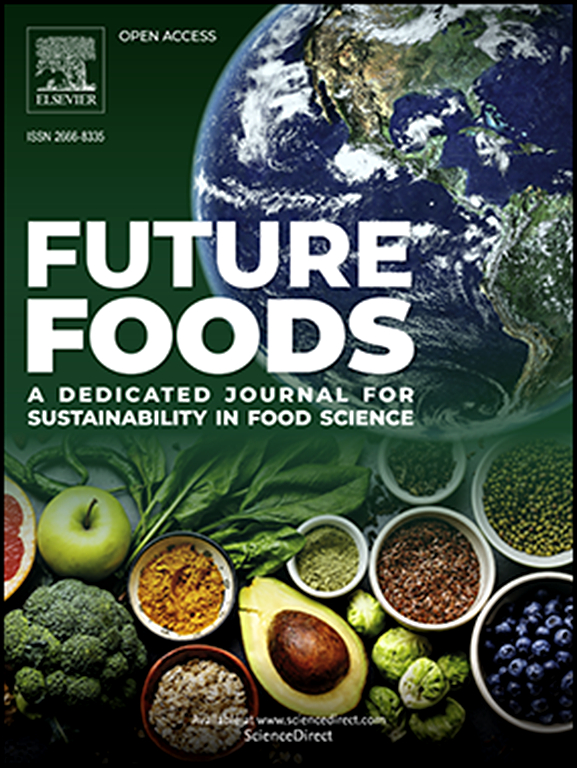Alterations in gut microbiome and metabolite profiling during in vitro fermentation of duckweed (Wolffia globosa) and its extracts by gut bacteria from obese adults
IF 7.2
Q1 FOOD SCIENCE & TECHNOLOGY
引用次数: 0
Abstract
This study investigated the impact of the digesta after an in vitro gastrointestinal digestion of duckweed powder (DWP) and its polysaccharide (DPS) and protein (DPT) extracts on the modulation of gut microbiome and metabolite production at 24 h in vitro fecal fermentation from obese adults. The findings indicate that all duckweed samples enhanced the growth of beneficial intestinal microbial genera, including Megamonas, Bifidobacterium, Phocaeicola, Bacteroides, and Blautia, while the DPS and DPT promoted the growth of bacterial genera Fusobacterium. Furthermore, all duckweed samples contributed to an increase in total short-chain fatty acids (SCFAs) synthesis compared to the control. DPS showed the greatest promotion of SCFAs, followed by DPT and DWP which played a more important role in metabolite alterations compared to DPS and DPT. Pathway analysis results showed that altered metabolites were mostly related to tryptophan metabolism. Therefore, duckweed and its extracts showed potential for use as a dietary supplement to improve gut health benefits in obese adults.

求助全文
约1分钟内获得全文
求助全文
来源期刊

Future Foods
Agricultural and Biological Sciences-Food Science
CiteScore
8.60
自引率
0.00%
发文量
97
审稿时长
15 weeks
期刊介绍:
Future Foods is a specialized journal that is dedicated to tackling the challenges posed by climate change and the need for sustainability in the realm of food production. The journal recognizes the imperative to transform current food manufacturing and consumption practices to meet the dietary needs of a burgeoning global population while simultaneously curbing environmental degradation.
The mission of Future Foods is to disseminate research that aligns with the goal of fostering the development of innovative technologies and alternative food sources to establish more sustainable food systems. The journal is committed to publishing high-quality, peer-reviewed articles that contribute to the advancement of sustainable food practices.
Abstracting and indexing:
Scopus
Directory of Open Access Journals (DOAJ)
Emerging Sources Citation Index (ESCI)
SCImago Journal Rank (SJR)
SNIP
 求助内容:
求助内容: 应助结果提醒方式:
应助结果提醒方式:


